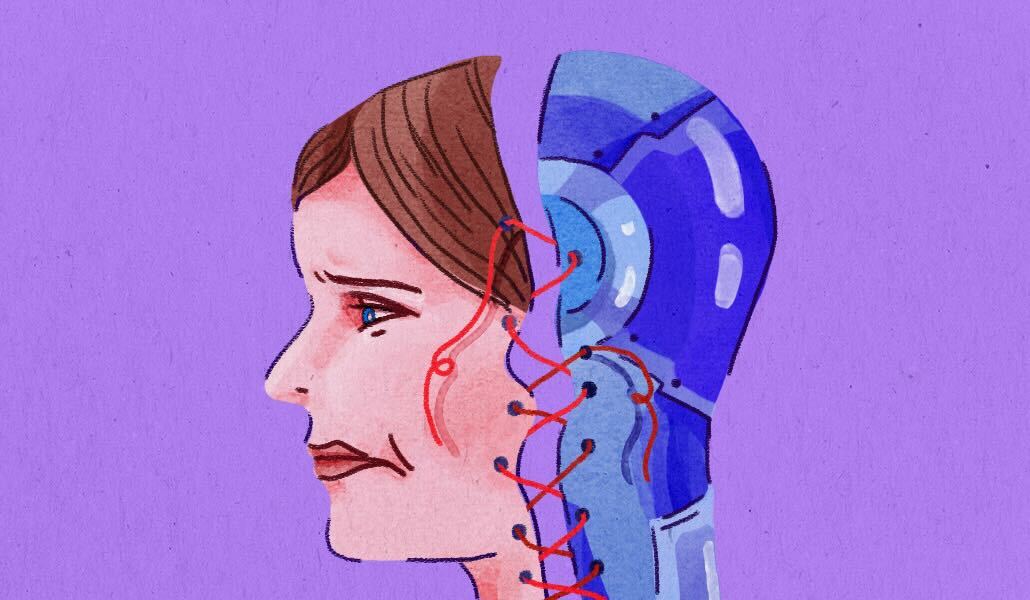‘People send their AI assistant to meetings’: Is AI diminishing work relationships?

This article is one of a six-part editorial series that will examine the importance of work relationships and how social dynamics are evolving between coworkers, peers, bosses, families, and clients, in the hybrid era, and amid the rise of artificial intelligence. More from the series →
Amrita Bhasin, co-founder of fintech startup Sotira, is facing an increasingly common conundrum at work: what she should or shouldn’t ask colleagues when ChatGPT is available. Instead of turning to someone next to her in the office to ask for a different way to phrase something, for example, it’s easier just to ask an AI bot. But that habit is potentially having some undesirable knock-on effects.
One such effect is disappointment. Bhasin is new to the workforce, having graduated last May, and was excited about what’s referred to in office speak as “water cooler” conversations, when coworkers can meet and chat spontaneously. But so far, this hasn’t been prolific in her Bay Area office. Even meetings are different from what she expected.
“Everyone has AI-generated meeting notes,” said Bhasin. “You don’t need to ask anyone for notes if you miss a meeting because you can look them up. People don’t go to meetings when they can send their AI assistant instead of themselves. It’s ominous because they’re not there but their assistant is.”
That same scenario isn’t just happening for meetings either. She knows colleagues who have AI plug-ins to answer and sort emails automatically. That makes her wonder how much she should use AI herself. “Is it bothering someone to ask them to review an email?” said Bhasin.
This increasing reliance on AI apps to speed up work and become more productive, may be particularly challenging in the long term, for younger workers, like Bhasin, who are just entering the workforce.
Steph Hamill, an entrepreneur, mentor and coach for an MBA program based in the U.K., is starting to see just that amongst those she mentors and her son. “One of the things that is abundantly clear is that he will never have the expedited growth learning process I had when I first went into work,” said Hamill. “There’s not going to be one-to-one bonding. You’re not going to have workshopping in the same way where you’re in a room vibing off each other and you’re deep diving into questions, ideas, creativity, innovation.”
A big part of that, she says, is losing the ability to be vulnerable due to the AI boom. People don’t need to worry if they’re asking a “stupid question,” because they don’t need to ask a human when they can just ask a chatbot that has no judgment.
“We are losing our compassion for vulnerability,” said Hamill. “People don’t say ‘there are no stupid questions’ anymore. You don’t hear that because people aren’t asking stupid questions because they have this plethora of tech that they can go and find the answer for fear of looking stupid. We need to get back to being a little more human.”
This gradual erosion of the more human element of work – the ability to be empathetic and non-judgmental toward others’ mistakes, laughing together, or learning from each other – may also compound an existing issue: the ongoing loneliness epidemic.
At the end of 2023, the World Health Organization declared it as a global health priority by launching a new commission on social connection to address what it considers a “pressing health threat.”
Nearly 1 in 4 adults reported feeling very or fairly lonely, in a survey published last month, which spanned 142 countries, according to a Meta-Gallup survey. The Covid-19 pandemic naturally exacerbated some of these feelings, but this wide sense of loneliness hasn’t improved since that health threat has diminished.
For some, working from home has its perks but can make individuals feel even more isolated. And going into the office isn’t necessarily the only answer, as those who do rely more on technology and digital forms of communication, which also reduces people’s social connectivity and leads to more loneliness, according to experts.
Will the increased use of AI technology diminish workplace relationships further? On one hand, internal workplace chatbots can help people find work documents faster or answer quick questions, allowing more time for one-to-one conversations with colleagues that can be more creative and productive. On the other hand, those chatbots might significantly reduce the need to ever talk to other employees in the office, especially if there is no longer an initial reason to reach out to them and ask them a question.
Bhasin is still creating work relationships, but she does think that as a society more needs to be done to support water cooler conversations in the office. “If we don’t find a way to replicate those serendipitous moments, it will be hard to get those back,” said Bhasin.
With increased reliance on AI technology and a decline in working with colleagues as regularly, Haley Slade, founder and CEO of copywriting agency Slade Copy House, says that it’s also important to see how it could impact work performance.
“When you are using ChatGPT, colleagues are no longer having that connection or bouncing ideas off each other,” said Slade. “They’re putting a prompt into AI, copying and pasting it, and less people engage with the content.”
When it came to some recent client work, a colleague swapped collaboration with other coworkers for AI outputs. They eventually had to be told by higher-ups that they needed to ask them questions instead of ChatGPT.
One simple rule of thumb is consulting both AI and a colleague to maximize success in the workplace while also reinstating the need to build workplace relationships. “The best work is done with collaboration,” said Slade. “Doing something with different perspectives produces the best results. Otherwise, work will suffer and relationships will suffer.”
In the best case, using this rule of thumb and intentionality, conversations could become more colorful than ever before. That’s what Haris Butt’s hope is as task management platform ClickUp releases its latest AI product ClickUp Brain, which pulls data from across an entire organization’s workspace to eliminate work about work. For example, instead of having to ask a colleague where a document is, you can ask ClickUp Brain and get the answer right away. Same with questions about paid time off, what’s in the employee handbook, and so much more. While he admits that some functions might not talk as much anymore, he feels overall optimistic about how it will impact workplace dynamics.
“I actually think the conversations are getting better now,” said Butt, head of product design at ClickUp. “We will see it go from ‘let me hit up Cori for the briefing notes’ to ‘I’m reaching out about the contents of the briefing notes.’ It’s no longer just a transactional conversation. The conversations are becoming more informed, where you have information readily available to you and you can ask the next step.”


